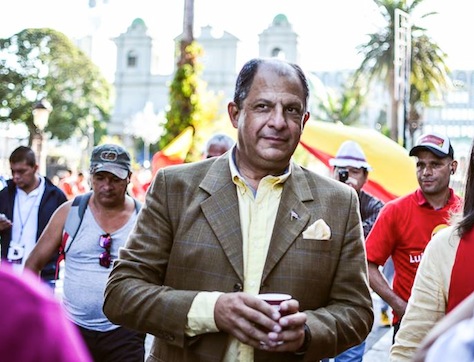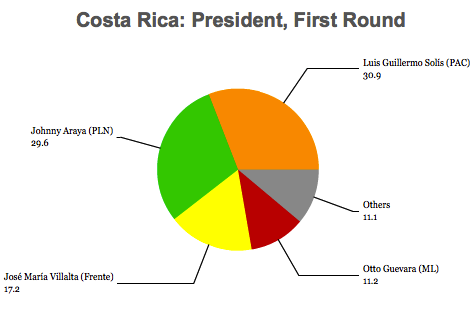Voters in three countries will go to the polls on Sunday in three very different kinds of contests on two continents:
In Thailand (population: 66.8 million), voters will elect all 500 members of the House of Representatives, the lower house of the Ratthasapha (National Assembly of Thailand, รัฐสภา), the lower house of Thailand’s parliament. 
Prime minister Yingluck Shinawatra called snap elections following growing protests that began last November, ostensibly over an amnesty bill, but which have now torn the country back into the familiar pro-Yingluck ‘red shirt’ camps and the opposition ‘yellow shirt’ camps, the same pattern that’s gripped Thailand since the election of Yingluck’s brother Thaksin Shinawatra in 2001. Their ruling Pheu Thai Party (PTP, ‘For Thais’ Party, พรรคเพื่อไทย) seems set to win a landslide victory due to the boycott of the opposition Phak Prachathipat (Democrat Party, พรรคประชาธิปัตย์). So the election itself is unlikely to end the political protests and growing political violence.
The Democrats and their supporters are instead calling for an unelected governing council, and there’s a chance that, if the situation escalates, the Thai military could intervene (as so often in the past).
- Read more about what the Thai protests have in common with Ukraine’s protests here.
- Read more about the Thai government’s disastrous rice subsidy scheme here.
In El Salvador (population: 6.3 million), three major candidates are vying for the Salvadoran presidency. Incumbent center-left president Mauricio Funes is ineligible to run for a second term. 
Polls show a tight race between Salvadoran vice president Salvador Sánchez Cerén, the candidate of the leftist guerrilla front-turned-political party Frente Farabundo Martí para la Liberación Nacional (FMLN, Farabundo Martí National Liberation Front) and San Salvador mayor Norman Quijano, the candidate of the center-right Alianza Republicana Nacionalista (ARENA, Nationalist Republican Alliance). Former conservative president Tony Saca is also running at the head of a coalition that includes a breakaway faction from ARENA.
If, as expected, no candidate wins over 50% of the vote, the top two candidates will advance to a March 9 runoff, which seems likely to pit Sánchez Cerén against Quijano in a race that features vastly different approaches to security, corruption, economic policy and regional alliances.
Sánchez Cerén is a former guerrilla leader during the 1979-92 Salvadoran civil war, and Quijano has been dogged by corruption charges and is linked to other ARENA figures under investigation for corruption. Funes, a former journalist, became the first FMLN candidate to win election in 2009.
- Read more about how, one decade on, El Salvador’s dollarization policy is going here.
In Costa Rica (population: 4.8 million), a general election will determine who will be the country’s next president and all 57 members of the Asamblea Legislativa (Legislative Assembly). 
The two leading candidates, according to polls are longtime San José mayor Johnny Araya, the candidate of the ruling Partido Liberación Nacional (PLN, National Liberation Party) and José María Villalta, the only legislator of the previously minor socialist / social democratic Frente Amplio (Broad Front).
If none of the candidates wins 40% of the vote, the top two candidates will face off in an April 6 runoff.
Araya is seeking the third consecutive term for the PLN after the presidencies of Óscar Arias from 2006 to 2010 and the incumbent Laura Chinchilla, Costa Rica’s first female president. Chinchilla’s administration is unpopular — both for its inability to control corruption or to tackle the country’s growing debt.
Two other candidates could conceivably pull an upset, however: Otto Guevara, a conservative attorney, who is running his fourth consecutive presidential campaign, and Luis Guillermo Solís, a social democrat and former diplomat in the Arias administration.
The two Central American elections follow a general election in Honduras last November and precede a presidential election in Panamá on May 4. Earlier this week, Nicaragua also cleared the way for Sandinista president Daniel Ortega to run for reelection in 2016.
- Read more about Suffragio‘s coverage of the recent Honduran general elections and the presidential inauguration last Monday of Juan Orlando Hernández here.
![]()

